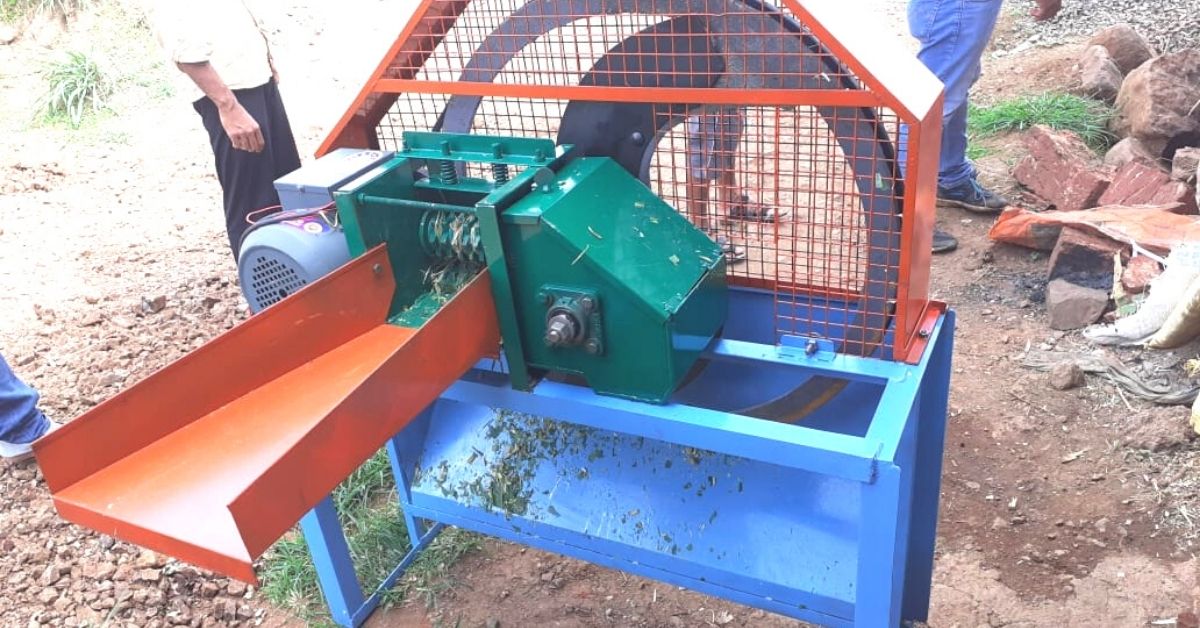When the COVID-19 pandemic spread across India around March 2020, the multinational company where Bengaluru-based Santosh Patil worked was among the first of many who bore the brunt of layoffs. By mid-2020, out of the 460 software engineers the company employed, only 200 remained.
In fact, the Centre for Monitoring the Indian Economy estimates that 122 million people have lost their jobs in the country due to the COVID-19 pandemic. These include salaried employees, small traders, and wage labourers, among others.
Santosh, who hails from Kolhapur in Maharashtra, was riddled with anxiety over the situation. “Most of our clients belonged to Europe. As the European countries faced the crisis before India and on a wider scale, we felt its economic effects in our company as well,” the 29-year-old tells The Better India.
“I felt the need to have a backup plan in case I’d be laid off as well,” he adds.
To become financially resilient, in December 2020, Santosh started a farm equipment workshop called Airball Enterprises in his family’s cowshed. The company sells customised farm equipment under the brand ‘Shivtej’, and earns around Rs 2.5 lakh a month.
A backup plan

“When I returned to Kolhapur owing to work from home, I started looking for solutions for alternate income,” says Santosh, who hails from a family with a farming background.
Here, he noticed that all the farm equipment shops in his area were closed, and farmers were having a hard time finding equipment such as chaff cutters, threshers, crop cutting machines and others. So Santosh decided to work on this gap.
Santosh says he started by designing a milking machine for cattle, compressor, fertilising equipment, and sugarcane pod cutter, among others. However, the startup did not offer the same conventional equipment. Instead, it is modified and improvised according to the needs of the customers.
“I used software such as AutoCAD to design and include features in the equipment based on the customers’ request. I also modified the designs as per their needs and made the machines compact, thus increasing their efficiency,” he adds. He also offers repair works and spare parts for farm equipment such as belts, pulleys, gears, motors and others.
Tanaji Patil is one such farmer who benefitted from Santosh’s enterprise. “I wanted a chaff cutter for the farm. “The conventional machine in the market throws the processed material in front of the unit. But owing to space constraints, I needed a machine that could collect the fodder at its base,” he says.
Tanaji adds that he came to know about the customised equipment manufactured by Santosh’s company through a few farmers in the vicinity . “Santosh built the machine in the exact dimensions I needed and to the best of the machine’s efficiency. The conventional machine in the market costs Rs 24,000, but Santosh built one which performs the same job for Rs 20,000,” he adds.
So far, over 40 farmers have been served by Santosh’s small business and are able to earn about Rs 50,000 a month as profits. While he is moving towards a steady number of orders and has hired two workers, taking his venture to newer heights was a daunting task, he says.
Building resilience
Chaff cutter customised by Santosh
Santosh says that he had no money to start his business and loaned Rs 1 lakh from friends and gathered Rs 2.5 lakh from his savings and family members. “While I managed the finances, procuring raw material, as well as arranging logistics and workforce were other hurdles to overcome. Moreover, there was no money or space to set up the business. Hence, I preferred to use the cattle shed as a workshop,” he adds.
The entrepreneur says that he also had to train his workforce in vocational expertise. “The lockdown and shortage of supply delayed the work, but meeting deadlines for farmers became of utmost importance. For example, there is no point in delivering seeding equipment after the monsoon season is over,” he adds.
Moreover, Santosh had no prior experience in the field. “I had to work hard to build trust and let the work and equipment speak for themselves. Word of mouth could be the only medium to instil trust and attract more customers,” he says.
Santosh says now that he has a stable customer base, he is investing in setting up another unit a few kilometres away from his original workshop. “Many farmers that approach us from neighbouring areas find the distance too much. The new unit will cater to local farmers,” he adds.
While this venture is a small step towards becoming financially independent, Santosh says he is satisfied with the progress. “Even if I lose my job, I now have a cushion and can build on it. My revenue stream will not be dry,” he adds.
Edited by Divya Sethu
No comments:
Post a Comment